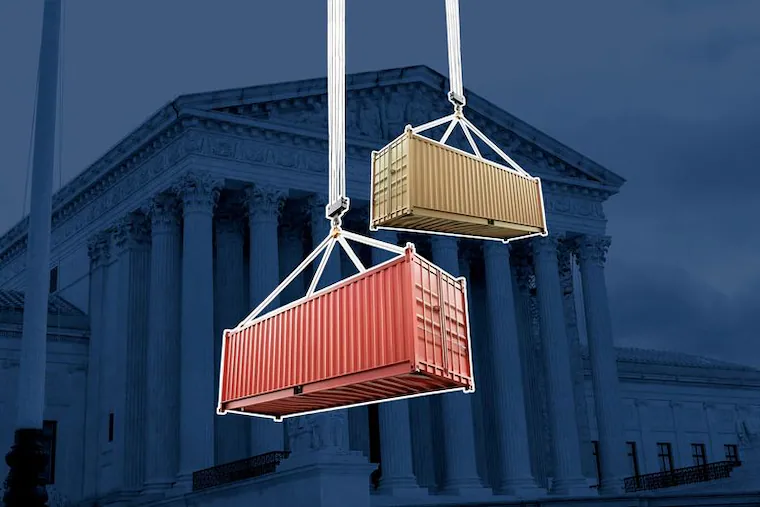Copyright The Philadelphia Inquirer

Chief Justice John Roberts could not have been clearer: tariffs are taxes. However their imposition may be defrayed by exporters or importers, as the government argued, the cost will eventually make its way to consumers. It already has. As the U.S. Supreme Court heard arguments Wednesday challenging whether Donald Trump can impose indiscriminate tariffs, justices seemed skeptical he possesses that kind of authority under the International Emergency Economic Powers Act. But even if the high court attempts to save Trump from himself by ruling against the most capricious application of his signature economic policy, the president seems intent on charting a course that is guaranteed to leave Americans worse off. With the courts on its side, Congress must reassert its power of the purse and end Trump’s tariff chaos. Doing business depends on predictability — whether it’s determining production costs, future investments, or hiring plans — yet the administration’s on-again, off-again tariffs have offered everything but. » READ MORE: A bright night for democracy as voters repudiate Trump’s scorched-earth policies | Editorial “When tariffs can change overnight, we can’t give our customers reliable pricing, and we can’t plan for next season,” said Walt Rowen, owner of Pennsylvania-based Susquehanna Glass Co. “That’s not how you build a sustainable business. That’s how you lose one.” Small Business for America’s Future, a group cochaired by Rowen, found that 78% of small-business owners surveyed expected tariffs to increase costs for imported materials and goods, while 71% anticipate raising prices to offset those costs. Americans already struggling can ill afford to pay more, yet experts believe that many companies have avoided passing the increased costs to consumers to remain competitive — either having stocked up before tariffs went into effect or absorbing most of the upsurge, hoping the levies are temporary. Industries that depend on imports more directly are harbingers of what’s to come. Prices for durable goods such as vehicles, electronics, and furniture have increased noticeably this year, according to a report by the Federal Reserve Bank of St. Louis. While the most dire predictions of a tariff-driven recession have not come to pass, it seems like it’s only a matter of time, as uncertainty pushes more and more economic indicators into the red. Already, the latest jobs report found hiring had slowed to a crawl in July. Now, newly released data show that layoffs increased in October, pushing job cuts this year to pandemic and Great Recession-level territory. Meanwhile, no matter what Trump says, inflation continues to rise. » READ MORE: By killing suspected drug traffickers at sea, Trump’s lawlessness enters a grim new phase | Editorial Still, it is not the Supreme Court’s business to save the economy. Its duty in this case is to protect the Constitution and its explicit granting of power over taxation and trade to Congress. In that matter, the choice should be simple. While the International Emergency Economic Powers Act grants the president the right to regulate commerce if the country is facing an “unusual and extraordinary threat” (which it is not), implementing what amounts to taxes on the American people is up to legislators, not the executive. While the justices seem likely to rule against Trump in this matter, the president seems just as likely to continue to press forward with other tariff actions, since his economic agenda includes little beyond imposing trade levies, which he sees as a cure-all. He has consistently lied or misrepresented the realities of international trade to justify his actions; this will not end — regardless of the court’s decision. Congress needs to find the courage to stand up to the president and protect its constituents’ pocketbooks from the administration’s reckless policies. If legislators are unable to do that, then it will be up to voters next year to find representatives who are willing to act.



